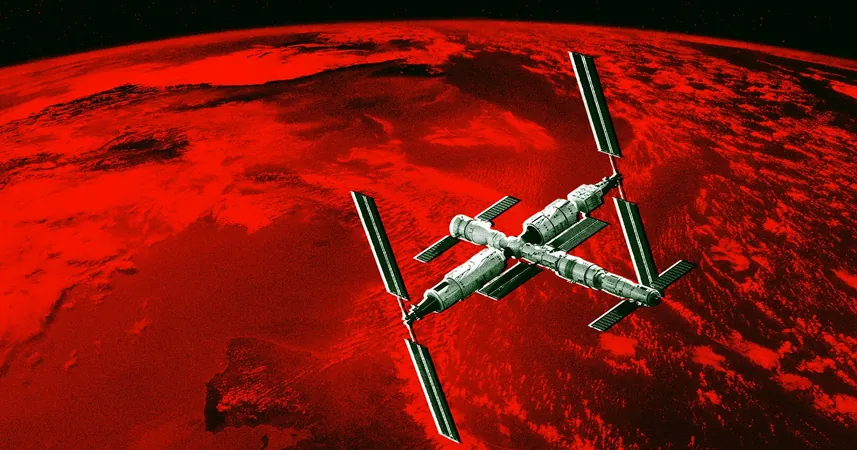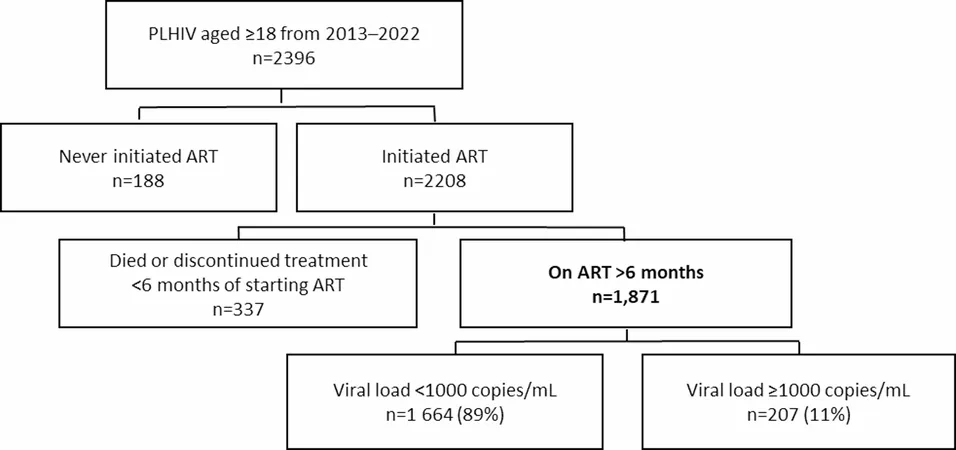
Mysterious Space Bacteria Discovered on China’s Tiangong Station!
2025-05-20
Author: Arjun
A New Microbe from the Cosmos!
In an astonishing revelation, scientists have unearthed a previously unknown microbe onboard China’s Tiangong space station. Dubbed Niallia tiangongensis—named after the very station it was found on—this microbe represents a groundbreaking discovery that could change our understanding of life beyond Earth.
Adaptation Beyond Earth!
Emerging from recent studies published in the International Journal of Systematic and Evolutionary Microbiology, this microbe has shown remarkable capabilities, adapting specifically to the harsh realities of space travel. According to researchers from the Shenzhou Space Biotechnology Group and the Beijing Institute of Spacecraft System Engineering, Niallia tiangongensis demonstrates resilience against oxidative stress and radiation damage. It can even utilize gelatin as a nitrogen and carbon resource, which aids in creating a protective shield against environmental stresses.
A Double-Edged Sword?
While it remains uncertain if this new strain poses any risk to astronauts, its relatives on Earth are generally deemed harmless—though one cousin has been linked to sepsis in vulnerable patients. This revelation raises the question: could studying this spaceborne microbe ultimately offer insights that better protect astronauts during their missions?
Why It Matters!
Researchers emphasize the significance of understanding microbial characteristics during prolonged space missions to safeguard both astronaut health and spacecraft functionality. As they stated, "Understanding the characteristics of microbes during long-term space missions is essential for safeguarding the health of astronauts and maintaining the functionality of spacecraft."
A Legacy of Discovery!
This isn’t the first instance of space-adapted microbes being found. Last year, a groundbreaking study from NASA uncovered mutated strains of the drug-resistant bacterium Enterobacter bugandensis aboard the International Space Station. This strain had not only adapted to survive in space but had also evolved to support other microbial life—a testament to the resilience of life itself.
The Final Frontier of Microbiology!
As researchers continue to explore these newfound microbial mysteries, it opens up tantalizing possibilities about life in space and how it might one day assist humanity in navigating the stars. Could these cosmic cousins of Earth hold the key to better health and survival in outer space? Stay tuned for more updates on this fascinating journey!



 Brasil (PT)
Brasil (PT)
 Canada (EN)
Canada (EN)
 Chile (ES)
Chile (ES)
 Česko (CS)
Česko (CS)
 대한민국 (KO)
대한민국 (KO)
 España (ES)
España (ES)
 France (FR)
France (FR)
 Hong Kong (EN)
Hong Kong (EN)
 Italia (IT)
Italia (IT)
 日本 (JA)
日本 (JA)
 Magyarország (HU)
Magyarország (HU)
 Norge (NO)
Norge (NO)
 Polska (PL)
Polska (PL)
 Schweiz (DE)
Schweiz (DE)
 Singapore (EN)
Singapore (EN)
 Sverige (SV)
Sverige (SV)
 Suomi (FI)
Suomi (FI)
 Türkiye (TR)
Türkiye (TR)
 الإمارات العربية المتحدة (AR)
الإمارات العربية المتحدة (AR)